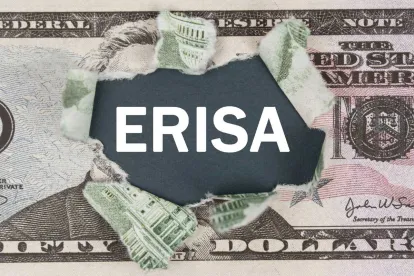The US Court of Appeals for the Tenth Circuit recently held in Pharmaceutical Care Management Association (PCMA) v. Mulready that the Employee Retirement Income Security Act (ERISA) and Medicare Part D preempted several provisions of Oklahoma law regulating pharmacy benefit managers (PBMs) and pharmacy networks. Left unchallenged, these provisions threaten the ability of employers and Medicare Advantage organizations to design uniform nationwide health plans. The Tenth Circuit’s decision in favor of PCMA overturned a lower court decision that caused great concern about the ability of states to indirectly dictate the design of plans governed by ERISA and Medicare Part D.
IN DEPTH
In 2019, Oklahoma passed the Prescription Access and Affordability Act, which targeted pharmacy benefit managers and their pharmacy networks. The Act, among other things, imposed retail pharmacy network access standards, prohibited differential cost-sharing discounts among network pharmacies, required allowing any willing pharmacy into a preferred network and prohibited the exclusion of a pharmacy based on an employee being on probation with the state board (together, the pharmacy network regulations).
PCMA filed suit to enjoin enforcement of the Act on federal preemption grounds. The US District Court for the Western District of Oklahoma held that ERISA did not preempt the pharmacy network regulations and that Medicare Part D did not preempt any willing provider and probation restrictions. PCMA appealed.
On appeal, the Tenth Circuit held that ERISA and Medicare Part D preempt all the pharmacy network regulations.
Regarding ERISA preemption, the Tenth Circuit confirmed that provider networks “are key benefit designs for an ERISA plan.” As a result, the court explained, attempts by states to restrict an ERISA plan’s design of its network or to “dictat[e] which pharmacies must be included” in a network, including by way of regulations imposed on a PBM, are “quintessential state laws that mandate benefit structures” preempted by ERISA.
Regarding Medicare Part D preemption, the Tenth Circuit said that Part D’s preemption clause is “akin ‘to field preemption’ and precludes States from regulating Part D plans except for licensing and plan solvency.” The court, applying that construction, held that Oklahoma’s any willing provider provision was preempted because it “establishes a rule that governs PBM pharmacy networks for Part D plans,” in addition to “encroach[ing] on an existing Medicare standard” governing preferred pharmacy networks.
McDermott authored an amicus brief on behalf of the ERISA Industry Committee, the American Benefits Council, the National Labor Alliance of Health Care Coalitions, the Self-Insurance Institute of America and the Pacific Health Coalition.
Unfortunately, this is unlikely to be the last word on state attempts to mandate benefit structures for ERISA and Part D-governed plans through PBM legislation. We anticipate that Oklahoma will file a petition for certiorari with the US Supreme Court. In addition, there are other states outside the Tenth Circuit that have enacted (or are considering) similar state laws. To the extent that litigation ensues outside the Tenth Circuit, the Biden administration’s US Department of Labor (DOL) may continue to argue against ERISA preemption, as it did before the Tenth Circuit in an amicus brief, on the ground that state pharmacy network regulations are saved from preemption as insurance regulation, even as applied to self-funded ERISA plans. The Tenth Circuit did not address DOL’s argument because Oklahoma waived it.





 />i
/>i
